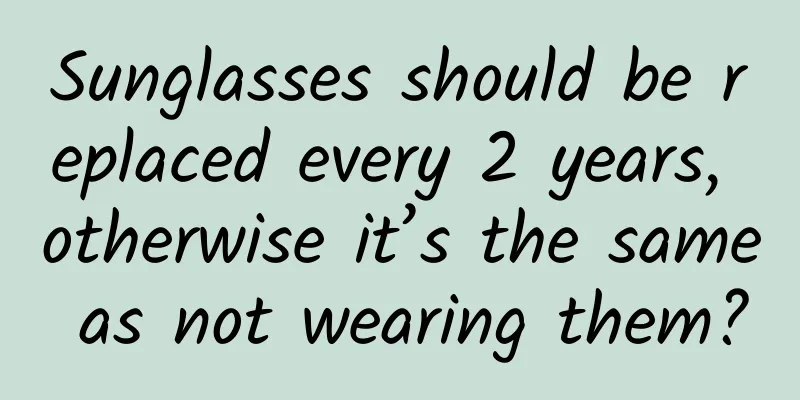Zhou Hongyi: 360 is too conservative in making smart hardware

|
Zhou Hongyi said that the Internet business has changed its game again. It is no longer free, but paid for. "I am planning to be a private car driver recently. I heard that I can earn 10,000 yuan a month without driving, so I am planning to buy a Maybach 600." "They say you can get free breakfast, including at the fresh food stores. Just register and you'll get two big peaches. They say the living standards of Beijing residents have improved a lot recently because VCs around the world have invested tens of billions of dollars, which are basically all subsidized to the people in Beijing, Shanghai and Guangzhou." Zhou Hongyi was confused by the change in the rules of the game. He said, "These young guys are really formidable. When I said I was free, I proudly said that I not only took away the cheese of Kingsoft and Rising, but also earned 25 million yuan." Zhou Hongyi said that some companies subsidized 200 million yuan in one month. The revolutionary trend is fierce, and 360 can be more radical in the field of smart hardware. "I corrected one of my problems. The hardware is free, but the price is not zero. The price is equal to the cost price. I take back this sentence today." Zhou Hongyi also announced today that a hardware product under 360 Smart Hardware will be free forever, starting with the camera. The following is the transcript of Zhou Hongyi’s speech (Tencent Technology edited version) 360 has two ideas for hardware: only related to security ***, I only make hardware related to safety, such as the children's watch I am making now, which is intended to protect your children. The camera I make, I hope to protect your family. Not to mention, the dash cam we make, originally intended to protect your driving safety. But in fact, I am really not interested in making hardware that is not related to safety. Second, I think that today, especially for hardware companies, unless you want to become JD.com, selling everything and becoming a platform, a certain smart hardware has a business model. For example, O2O is called heavy verticality. I think the same is true for smart hardware. You must be very vertical and deep to have a chance. Because today, it is becoming increasingly difficult for hardware to become an independent business. Can you make a profit by selling hardware? It is possible. But under such market competition, the profit will become increasingly thin. Therefore, it is difficult to establish an independent business model by just making an isolated piece of hardware. So after you attract users through the hardware, you may need to explore what kind of services you can provide to users in the future. I just want to do my old job. I used to protect everyone's computers and mobile phones. Now the IOT era has come, and I hope to use IOT technology. My O2O is from online to offline, from online security to offline security. I hope to protect your home, your family, and your children. I think if a person wants to become an expert in various fields, I would have to memorize words, because I have never done these things. I have to memorize words when I give a PPT presentation. I think it is impossible for a company to become an expert in various fields, so don't worry. Cramming too many products into hardware goes against positioning theory From mobile Internet to IOT, I want to share with you an insight. I think the positioning theory has come back. In the era of PC Internet, I once lamented that the positioning theory seemed to have lost its effect on Tencent. Because at that time, computers had large screens and hard disks, so if you made a small software and installed it on the user's computer, it could basically do anything. So everyone worked hard to make tools. So once you have a tool on the user's computer, it can continuously deliver many new tools to the user's computer, so soon your computer will be filled up with several major family software, and then it's our turn to help everyone clean it up. But today, it is particularly obvious on mobile phones that you have made it impossible for users to recognize the brand. Users cannot say in one sentence what the app does. Even if you find ways to induce users to click, or pre-install it on their phones, if users have no awareness of the brand, they will not use it. Smart hardware is a more typical example, because no matter how good smart hardware is, users have to spend real money to buy it. You accumulate users one by one. No matter how powerful a smart hardware company is, it is impossible to sell one million pieces of hardware in one day. For some software tools that become popular overnight, such as Zuji and Lianmeng, it is possible to get one or two million downloads a day. Of course, everyone is bragging now, saying that they get 10 million pre-orders a day, but to actually sell them, let alone 10 million, let’s say 100,000 pieces of hardware, it involves logistics, distribution, supply chain management, and even after-sales service. I think hardware has an opportunity for many teams. The student on the stage just now said that brands are useless. I think this is wrong. You entrepreneurs should read books carefully. Those are not my inventions. You must read some books. There are 22 books on positioning theory. Of course, those books are easier to read. You can finish reading a book in one hour. They are relatively simple. The positioning theory is that when you choose a product, with so many choices today, the most important thing for you is not the initial market, but to let your users see your hardware, and they are willing to pay real money to buy it, and they must be able to explain why they want to do it. In fact, this positioning is the first step of your brand, it's just a matter of whether you are well-known or not. So today if someone tries to cram too many products or too many functions into a piece of hardware, he is violating the positioning theory. Similarly, when consumers go back to look at their own home appliances, although I know some people dream of taking over their entire home, drinking my water, breathing my air, charging my battery, using my mobile phone, watching my TV, and using my mouse pad. But this is just a dream, because people don't think that you are an expert in all aspects. When people choose hardware, are your TV and air conditioner really the same brand? No, because there are TV experts and air conditioner experts. So today we see that if some companies try to make their product lines very broad, I think they are not competing with you, they are fighting against positioning theory and people's IQ. I think that as a consumer, in fact, in his mind, in every category, he will have his own common sense and his own mental judgment. 360 paid a lot of tuition fees for making smart hardware Therefore, for each of us entrepreneurs who are engaged in smart hardware today, the biggest opportunity does not really lie in competition, because even if the smart hardware giants are richer than you, they still have to sell hardware one by one. So in this regard, I think your biggest advantage is to find a niche market and establish awareness in the minds of your users there. Now let’s go back to smart hardware. You will find that the smart hardware we make is just a physical mass consumer product. So I think this theory is worth reading. As long as you position yourself correctly, you can still find your own market. On the other hand, everyone says that smart hardware is having a tough time right now. We invited several investors today, and everyone was probably talking about how smart hardware doesn’t seem to be popular yet. I have also been insisting on making smart hardware, but it seems that this market has not taken off yet. But if you analyze it carefully, we have seen a lot of problems in the smart hardware industry in the past period. The real problem is not external competition. Even some smart hardware giants have made some mistakes. They actually made some products that were not rigidly needed and did not solve pain points. Even the frequency was very low, and sometimes it violated user habits. So I think this is an issue that everyone should reflect on today regarding many smart hardware products. For example, I am indeed not an expert in hardware, and I frankly admit that I have paid a lot of tuition fees in the process of making hardware, including mobile phones. But if we exclude things that are closely related to the hardware itself, I think there are commonalities in making hardware, software, and all products. This commonality is what I have repeatedly emphasized. Have you really found an illusory user demand or a real user demand? We often talk about rigid demand, which refers to rigid demand. In other words, you are not solving the demand, you are solving the pain point. Why do we often talk about pain points instead of itch points or insignificant points? I think when a market is just emerging, your product must meet these two points to be popular. We invested in two companies some time ago, I won't mention their names. They made a *** remote control, which can communicate with mobile phones when placed in the house. The remote control can emit various infrared waves and can control the air conditioner and TV at home. Would you buy this product? Those who would buy it, please raise your hands so I can see. The proportion is a bit too low. Be brave. When I first heard about this product, I was also very excited. I often watch TV with a lot of remote controls in my house, because I have installed several boxes from different manufacturers, and I often use the TV remote control to adjust the volume and DMI input. However, many of us entrepreneurs often make the mistake of judging others by ourselves, instead of thinking about what ordinary consumers are like with empathy. First of all, there are many remote controls at home, but most people don't use them often. The most commonly used one is the TV. How likely is it that you can't find the TV remote control? For other home appliances, such as refrigerators and microwave ovens, many things don't need remote controls. You probably use the air conditioner remote control twice at most: once when you first get home to turn it on, and then turn it off before you go to sleep or the next morning. In total, you use it about twice. I watched the company's promotional video. You have to design a scene for any product you make. They designed a scene where I was a careless person and couldn't find the remote control, so I searched all over the house. Is this scene real? I asked him. The second scenario is that my remote control has no batteries, so the TV doesn't work. There are no batteries at home, and there is no store downstairs. After they conceived such a scenario, they said, "Brother, spend 400 yuan to buy a universal remote control." I think if this remote control is free, I would be willing to try it, but think about it, all the scenarios and needs he described cannot be said to be completely absent, but they are definitely not rigid needs. Many people make light bulbs. When I think about it, it’s like a nightmare. You install two Philips light bulbs at home, install an app, install a socket, and install the app. When you get up in the middle of the night to go to the bathroom, you have to turn on the light, reach for your phone, and fumble to open the app. Is this really the real scenario for users? Many entrepreneurs make hardware just for the sake of making hardware So I see a lot of problems with smart hardware, and the problems are not external. Many entrepreneurs are not big enough for Xiaomi to be excited to compete with you. For example, when I made mobile phones, someone asked Fengjie to write an article to tease me. If this classmate made a piano, if Fengjie didn't come out to tease you, it means you are not big enough to attract the attention of giants. However, many of us can magnify this demand because we want to do it, start a business for the sake of starting a business, and make hardware for the sake of making hardware. In fact, if you really ask yourself, what are the mistakes made by many of our smart hardware? It is to turn some needs under certain special conditions and certain special scenarios into a broad, universal, and popular demand, and then make a product. There is actually another idea when you make a product. Some people say that I want to create demand, but in fact this is a lie. Even Steve Jobs couldn't create demand. Tell me what Apple has made that is not a big demand. Including the previous period when everyone talked about this hardware and that hardware, I later realized that mobile phones are actually just needed. For example, let's talk about just needed. Today, if I take away the sports bracelet in your hand, will you be anxious? Not necessarily. Today, you go home, the air in Beijing is good, the pollution is not that serious, and you don't turn on the purifier, so you won't be anxious, right? But if I tell everyone here to hand over your phone and let me take care of it for an hour, not even an hour, but 20 minutes, many of you won’t be able to check WeChat or Weibo, and you will definitely get angry with me. So it’s very easy to judge rigid demand. When you think your hardware can surpass Xiaomi, when you think your product can subvert the mobile phone, it’s actually not the case. Ask yourself, what if we don't have it? Many of you don't have that remote control at home today. You have lived through all these years, and it has brought you convenience and inconvenience. Is it really that important to have its convenience or not have its inconvenience? If this importance can be measured, it is the price. If this thing is 20 yuan, you are willing to try it without hesitation, but if it is 200 yuan or 400 yuan, you may have to consider it. Missed the good old days of making smartphones 4 years ago The competition in the mobile phone industry has become fierce recently, but I regret it now. It was such a wonderful time four years ago. When making mobile phones, there was no need to talk about appearance or design. No design was just a bad design. At that time, mobile phones did not need to consider whether to make a metal shell or full metal like today, and also whether the metal should be 403 stainless steel or aluminum alloy. Of course, aluminum alloy is easy to bend, and we are all straight men, so we need to use aluminum-magnesium alloy. Why? It's very simple. It was a rigid demand. At that time, many people had never used a smartphone and needed to change their phones. When many people first used a smartphone, they used a relatively low-end one, not a very high-end one. If everyone dreams of changing their mobile phone, think about it. Think about the other smart hardware products we talked about. Can you give me an example that is as urgent, necessary, and indispensable as a mobile phone? So the mobile phone is the most necessary thing in smart hardware. But not necessarily today, because today's competition is too fierce. I knew LeTV was making TVs, and I hesitated for a long time, whether to partner with them to make TVs? In fact, I found that the TV in our house had not been turned on for a long time. LeTV gave me a 70-inch TV, and I sounded very happy, but when I was sitting on the toilet, sitting on the bed, when I was lying on the sofa, I was still happy to take out a 6-inch mobile phone to watch, although the screen was relatively small, but it was very convenient. I advise everyone that in daily life, when you want to make smart hardware, you should treat yourself as an ordinary consumer and observe the user habits of ordinary consumers around you. User habits are difficult to change and difficult to educate. What we need to do is to find out how to bring them a more convenient experience and how to solve their original difficult problems. I think if we go against user habits and invent a demand on our own, which in fact turns out to be a false demand, then it will be difficult to succeed no matter how good your hardware is. The camera revolution is not a failure. First of all, I want to talk about what I announced today. I don’t dare to use our products as examples anymore, because it always hurts the fragile hearts of our product team. Last time I talked about routers and summarized and analyzed some things, but a competitor spread rumors, saying that Zhou Hongyi admitted that routers had failed and that they would no longer be made, which made our team very sad. Last time I shared about children’s watches, and I wanted to share about cameras today. So first of all, cameras have not failed, and the revolutionary situation is very good. Just now, everyone mentioned a question about the business model of hardware. I would like to share my opinion. I think there are two types of hardware. One type of hardware is that you solve a rigid demand, but it also has pain points. For example, when I first came here, I heard about the classmate who made pianos, but his product was definitely not a popular product. China has not yet evolved to the point where every family needs a piano. So for a product like this, I think it's actually targeting a specific group of people. If you target this kind of product at a specific group of people and provide very good service, I think there's absolutely no need to engage in a price war. I think for this kind of hardware, you should try to make its experience better and offer a reasonable price. It's just that you may not be able to continue to pursue huge profits as before. You should provide a reasonable price so that your hardware can enter a virtuous circle, and you can provide these users with many value-added services in the future. Because I feel that for this kind of product, even if you lower the price to the lowest, people who don't need it or don't need it will still not need it. Even if you give it away for free, some people still complain that they have no place to put it at home. After buying the power strip, the tool cannot connect to the user Even if you give it away for free, we often talk about a concept. I have been thinking about whether to make a power strip. I have always felt that making power strips does not fit the image of a high-tech company. So Huawei does not make power strips. Huawei says that my mobile phone is of good quality. I have another reason to doubt the power strip. You can't buy a power strip and plug in 360 things and the power will be automatically cut off. This is impossible. So the power strip is just a tool, an advertising effect, and it cannot connect with users. So if you make a product and you think the price is very low, you can make it by engaging in price wars or even subsidizing it, and you can get a lot of users. I often say that just because a user has your hardware does not mean they are your users, they must have a connection with you through the hardware. If you buy a power strip, you have basically no connection with me through this power strip, and I will not install an app just for a power strip. Buying more of this kind of thing is nothing more than strengthening the brand and promoting it to users, and it cannot become an independent Internet model. If you find that lowering the price of some products either does not increase sales, or even if you lower the price and increase sales, it cannot really help you build a user base for your Internet services. My suggestion is that this kind of product should not be called Internet hardware, but hardware equipped with Internet services. I think you should still run a normal hardware business. So for example, how much do you sell the piano for? 3999, so the profit is still good. Of course, I think its user base is limited, and it will become a company with good profits. At the same time, it may be able to expand its services through the accumulation of user base and the large number of children in the future. Selling hardware is no longer a business Another type of product, hardware, I think it is difficult to become an independent business. Selling hardware is no longer a business. So I think that in the future, mobile phones, TVs, boxes, and even watches may all be products of this type, which can help you cover the vast majority of users and are broad mass products. The hardware of such a product will definitely become less and less profitable. Originally, when I said the hardware was free, I meant selling it at cost price, but the hardware has become a bridge between you and the users. Users often use this hardware every day. For example, I often talk about LeTV's Liu Hong (Weibo). Let me reveal the secret of LeTV, how LeTV beat traditional TV manufacturers, because traditional TV manufacturers sell you a TV and have nothing to do with you. You watch the TV at home for five years, and as long as the TV is not broken, you really don't touch it, so you are their one-time customer, but not a lifelong user. LeTV finds a way to sell the TV to you at a very cheap price through various subsidies. When you buy the TV and turn it on, you will find that your relationship with LeTV has just begun. As soon as you turn it on, it is equipped with a startup advertisement and then enters the LeTV program list. So when you use its TV, you will find that the TV has only become a bridge between LeTV and you. It has the same effect as installing a LeTV app on your mobile phone, except that the control will be stronger. But whether you install a LeTV app on your phone or a LeTV TV at home, you interact with it through LeTV's Internet service. LeTV charges you for Internet value-added service fees. I have been trying to figure out how to crack its fees. I can watch it even if I pay, but the images I see are very rough. But I don't know how to pay. The idea of free hardware is still too conservative I think this kind of product is particularly suitable for Internetization, so I have been thinking about it for a long time. But I am still too conservative in the idea of free hardware. Why? Because the software is free, everyone thinks it was a good thing that I made free antivirus software back then. However, the total cost of free software is fixed, so the more the software is spread, the lower the marginal cost for each user. I thought it was quite revolutionary back then. Recently, I woke up and found that the world has changed. Now everyone has changed the way of doing business. It is no longer free, but losing money. I am planning to become a private car driver. I heard that I can earn 10,000 yuan a month without driving, so I am planning to buy a Maybach 600. It is said that everyone can have free breakfast, free lunch boxes are delivered at noon, and free movies are available after get off work. Even those who sell fresh food will receive two large peaches as long as they register. They say that the living standards of Beijing residents have improved a lot recently, because VCs around the world have invested tens of billions of dollars, which are basically subsidized to the people in Beijing, Shanghai and Guangzhou. I don't really understand the rules of this game anymore. I asked them about it. These young guys are really awesome. When I said I was free, I proudly said that I not only took away the cheese of Kingsoft and Rising, but also earned 25 million. Now they are subsidizing 200 million a month. They can kill their competitors. Let them subsidize. I also watched movies twice recently, and I didn't spend much money. We were thinking, since there is such a revolutionary trend, can we make the hardware more radical? I corrected one of my questions. The hardware is free, but the price is not zero. The price is equal to the cost price. I take back this sentence today. 360 Camera will be free forever I want to announce something today. I want to start an experiment. I want to declare a piece of hardware under 360 Smart Hardware to be free forever, starting with the camera. My purpose of making this camera is very simple. It is not only for basic security and monitoring for families, but also for many small and medium-sized enterprises, many hotels and restaurants to watch the store at night. The most important thing is, I think it can become a connection between each of us and our family, because the purpose of making this camera was very simple, because my parents are old, I am usually very busy, and they used to live out of town, and I hope to see them often. I also have two children who are studying abroad. They are still very young, and it is difficult for me to see them regularly. And as you know, if you give a child an Apple computer and let him use Facetime, the child will become impatient after talking to you for a few words and will run off to play with his own things. |
<<: Code practice of background positioning upload
>>: Zuckerberg becomes world's ninth richest person as stock prices rise
Recommend
How do you keep the apples that Wang Yaping displayed in the space station fresh?
recently Photos by Zhai Zhigang and Ye Guangfu ——...
Kuaishou registered the trademark "Kuaishou Auto" and may be focusing on the field of in-car short videos. So is it far from Douyin making cars?
Nowadays, it is not new for various giants to cro...
After selling technology licenses and then selling buildings, is it possible for AMD to turn around?
After the Chinese state-owned company Tianjin Hai...
90% of copywriters often make these three mistakes. Have you made any of them?
The three most common mistakes in many advertisin...
Burn My Calories: Why can’t I lose weight even though I exercise every day?
Many people rely on exercise to lose weight, but ...
Community operation: the key point to keep the community active!
I ate and drank too much in the first half of the...
Kuaishou Operation丨The delivery and process of Kuaishou advertising
According to the "2019 Internet Service Indu...
How to use the pyramid model to implement user stratification operations (with case studies)
As the Internet becomes more and more permeable i...
Toutiao’s 40-page data report comprehensively analyzes content entrepreneurship!
Over the past year or so, the rising star-like ex...
How to plan an e-commerce promotion strategy?
How to plan this kind of big promotion campaign? ...
It’s the season of blue tears again! But…isn’t this really ocean pollution?
It’s the season for blue tears to sweep your scre...
After chatting with a group of marketing directors, some understandings about leading a team
After working for three to five years, most of my...
The Ministry of Industry and Information Technology responded to the "sharp drop in Chinese mobile phone users": two reasons
The Joint Prevention and Control Mechanism of the...
1000 top landing pages, 5 conversion rate optimization tips
Conversion is the key factor in paid promotion . ...
Xiaohongshu is a project that promotes products and makes money. How does Xiaohongshu make money by promoting products?
Every industry needs users, and Xiaohongshu is th...









